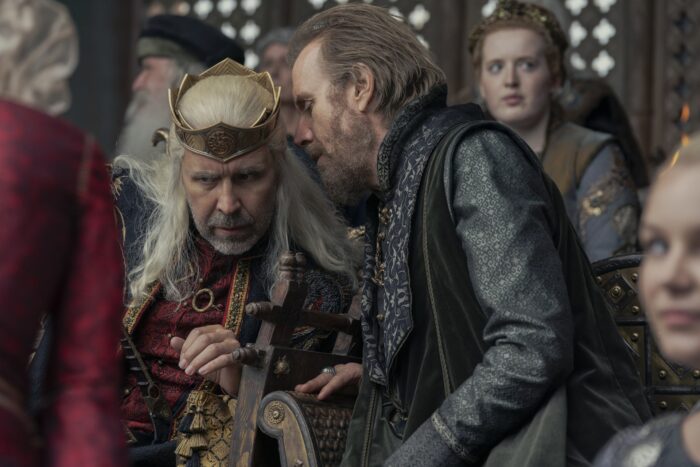
Daemon Targaryen: I’ve only ever spoken the truth. I see Otto Hightower for what he is.
Viserys Targaryen: An honest and unwavering Hand?
Daemon: A [expletive deleted]
After three episodes of HBO‘s House of the Dragon, Hand of the King Otto Hightower has already been identified by some of the audience as the Littlefinger of the show. Hardly anyone has a good word to say about King Viserys’ cunning goodfather. (‘Goodfather’ is an A Song of Ice and Fire term for father-in-law, fyi.)
Is simply doing questionable things worthy of being compared on par with Petyr “Littlefinger” Baelish, arguably the second most monstrous villain on the show? (The Night King would arguably be first, strictly from being an actual monster.)
Baelish kept under the radar most of the way through season one of Game of Thrones, before getting onto the scoundrel track in the last half of the season by setting up well-meaning protagonist Ned Stark for betrayal. So far, only three episodes of House of the Dragon has aired. Has Otto Hightower been operating at the Littlefinger rat-bastard level already? That feels like a high bar to clear.
OTTO’S GREATEST HITS
Otto has largely been presented as rather confrontational in small council meetings, siding either against Lord Corlys Velaryon’s hawkish demands for military action in the Stepstones, the island neutral zone between Essos and Westeros, or more generally opposing the actions (and/or existence) of King Viserys’ rogue prince brother, Daemon Targaryen.
Audiences might side with Corlys’ desire to fight piracy, or just enjoy Daemon Targaryen’s joie de vivre (brutal as it might be) but that puts Otto more into an antagonist role than a proper villain (although they’re often the same.)
By the end of the first episode, Otto did contrast his otherwise reasonable demeanor by sending his teenage daughter Alicent to provide comfort to the king, newly a widower. Provide comfort is often a euphemism, and it is an unanswered question if providing comfort was on the level of the random Targaryen wall tapestry. Regardless, Otto was clearly ordering his daughter to attempt to seduce the king. As actions go, this wasn’t great.
By the end of the second episode – taking place six months later, the anxious Alicent was declared to be the king’s intended wife, something Otto clearly had been banking on.
By the end of the third episode – taking place three years later, Otto was urging Alicent, now the queen and the mother of Viserys’ firstborn son Aegon, to convince Viserys to reverse his previous decision that had designated Princess Rhaenyra Targaryen, the king’s daughter with his first wife Aemma, as heir. Otto’s directive was to have his grandson Aegon be the new heir – following the traditional laws of primogeniture.
So far, Otto apparently hasn’t poisoned anyone, had anyone murdered, etc. But he’s clearly making some power-grabbing moves, going from Hand of the King, to Goodfather of the King to possibly one day Grandsire of the King (should little Aegon take the Throne.)
This and other topics should be addressed.
GRABBIN’ THAT POWER
On the surface, Otto undeniably does appear to be pursuing power. His detractor Prince Daemon might have been onto something when bad-mouthing Otto to Viserys.
Daemon: (In regards to Otto) A second son who stands to inherit nothing he doesn’t seize for himself.
But this accusation is somewhat watered-down when it is pitched as a positive from Lord Corlys to Daemon himself in the second episode.
Lord Corlys Velaryon: We are the realm’s second sons, Daemon. Our worth is not given. It must be made.
So, are the efforts of a second son to prove their worth a bad thing, or an admirable thing?
It seems that a pursuit of power is an expected thing, and is not good or bad in itself. Other than from where one stands on the power spectrum. If one has no power, anyone who does can appear bad.
Since many characters in Game of Thrones were either trying to obtain power or were desperately trying to preserve their power, power itself doesn’t appear to be the problem so much as the actions one takes to obtain/maintain power.
Is the desire for power the mark of a villain? Coming back to Littlefinger – whom Otto is being compared to nowadays, he definitely desired power.
Can we say objectively that people who are focused on power should be looked down upon and those who choose to avoid power should be beloved?
Jon Snow: This seems complicated, I don’t know.
Daenerys Targaryen: Look, the Iron Throne was mine by right, even if you had the better claim.
Stannis: That’s my line. Except the better claim part, because no one had a better claim than me.
BETRAYING RHAENYRA
Talking about betrayal is an easy way to make associations between Otto and Littlefinger, the signature Judas figure of Game of Thrones.
Rhaenyra is presented as a protagonist – the language of the show is signaling that she’s the rightful future ruler. The end of episode one with the ceremony officially making her Viserys’ heir had the hallmarks of a celebratory resolution of a character arc. In episode two, she shows up both Otto Hightower and her uncle Daemon in successfully defusing the egg-stealing crisis at Dragonstone. By defanging these posturing rivals, Rhaenyra is shown to be the Real Deal.
The show made it fairly clear with the discussion surrounding the mythical White Hart and how it signaled royalty, that when the rare animal revealed itself to Rhaenyra, she was symbolically granted divine legitimacy (with the scriptwriters being a stand-in for the divine here.)
So Otto urging Alicent to convince her husband (the king) to replace Rhaenyra with Aegon feels like a treasonous betrayal of the princess, as well as thematically the wrong thing to be doing. But it’s more complicated than that.
Princess Rhaenyra was named heir in part because Otto lobbied for it. His motivations seemed clear – he didn’t want Prince Daemon to remain the king’s default heir in case something happened to Viserys.
Daemon: Like I said, he’s a [expletive deleted.]
The birth of Aegon to Alicent made the prospect of Prince Daemon becoming king an even more remote prospect. Now there was an heir and a spare between the Iron Throne and the rogue prince.
But much like Otto nominating Prince Daemon to be lord commander of the City Watch to keep the other realm-wide reigns of power (finances, the courts) out of Daemon’s hands, there were complications in maintaining support for Rhaenyra as heir.
RHAENYRA’S RIGHTS
By the time of the third episode, three years had passed since King Viserys had made the announcement of his wish to marry Alicent Hightower. During that time, they’d married, conceived a child, Alicent had delivered a son, and was pregnant with a second child. One might say that Viserys had been busy, but honestly Alicent had been doing the heavy lifting. Thank goodness there had been no complications.
The show’s third episode (once the events on the Stepstones were presented in an exciting establishing sequence) revealed that it was Prince Aegon’s second birthday and there seemed to be a demonstrable belief among the primogeniture-minded lords of Westeros that Prince Aegon would be named heir, replacing Rhaenyra.
Lord Hobert Hightower: We’re quite a party assembled in his honor. And surely by the end of this hunt, we will have more to celebrate.
Otto Hightower: And what is that, pray tell.
Hobert: It is Aegon’s second name day. His infancy is behind him. It only remains for Viserys to name him heir to the throne.
Some of the lords had this belief in an Aegon-annoucement, but there was at least one exception.
Otto: I wouldn’t be so sure.
Otto knew the king’s mind on this probably better than most. Viserys had named Rhaenyra his heir (from Otto’s suggestion) and during the two years since he’d had a son – a situation which would usually seal the deal on primogeniture inheritance, he hadn’t rescinded his previous decision to designate the princess to be the future Queen of Westeros.
Since Otto keeps things close to the vest, it’s a mystery on how Otto felt about this.
Assuming that Otto was continuing to be working along the lines of a Daemon-détente policy, Rhaenyra’s designation as heir was a success in keeping Daemon from inheriting the Throne, and Aegon’s birth put two people in front of Daemon. Provided that Rhaenyra’s exception to the standard rules of primogeniture remained in place.
If Rhaenyra was demoted in favor of Viserys’ firstborn son – should something happen to Viserys and Aegon, then who would be the default person to inherit?
Rhaenyra: Me.
Rhaenys: That’s adorable. It would be Daemon.
Regardless of Otto’s opinion on things, Hobert Hightower wasn’t satisfied with his niece only as a queen.
Hobert: He is the king’s firstborn son.
Otto: I don’t know that His Grace sees it so clearly.
Hobert: Then it lies with you to make him see it … Lord Hand.
The emphasis that Hobert put on his brother’s title was not a warm one. It was almost a reminder to the old saying that the “King eats, and the Hand takes the shit” and Hobert is expecting Otto to do just that.
Ned Stark: Wait, I thought it was “the King dreams, the Hand builds.”
Old Nan: Oh, you sweet, summer child.
At the hunting grounds, Hobert in particular seemed eager to treasonously declare that Aegon was truly Viserys’ heir, and by implication that Rhaenyra had already been set aside.
Hobert: Hail, hail Aegon, the Conqueror-Babe, Second of His Name!
This might have seemed like casual talk, but “[number]th of [their] Name” stylings were reserved for kings. It’s not just that he was the next person named Aegon Targaryen since Aegon the Conqueror aka Aegon I.
Aegon the Uncrowned: That would be me, Aegon I’s grandson, the son of Aenys.
Maegor the Cruel: LOL. Hilarious!
It seemed clear that Otto was feeling pressure from his older brother to advance the family’s power by sticking his neck out and getting the king to overturn a decision that Otto had had a hand in securing.
There were advantages in the status quo and not messing with Viserys’ previous decision. With the Hightowers having married into the Targaryen line, even if Rhaenyra ascended to the Iron Throne – with the absence of shenanigans – the children of Alicent’s line, like the children of Rhaenys’ line, could be seen as good marriage prospects for powerful alliances (especially to Rhaenyra’s children, should she decide to have offspring.) They would likely be dragonriders, and then the rest of the Hightower family would have cousins with access to true dracocratic power.
This didn’t seem to be enough for Hobert, who wanted a nephew as king. Or at least A King.
To throw out some wild conjecture – Otto Hightower (like Renly Baratheon) was perhaps not as much of a victim of primogeniture bias as Rhaenyra and Rhaenys, but primogeniture had not done him any favors.
The lord of Westeros might be suspicious of Otto’s motivations in working to break this eldest male tradition, since he was a second son.
Was Otto now on the hook to fix a potential situation that he had caused?
RHAENYRA’S RIGHTS AND MARRIAGE
It is interesting to note that Otto’s first attempt was not to try and convince Viserys to replace Rhaenyra as his heir, but to instead arrange a betrothal between the the princess and her young brother Aegon, a betrothal to be consummated at some reasonable date in the future. This compromise would keep Rhaenyra positioned to be a queen, and would satisfy the entrenched patriarchy that the king’s eldest son would become king.
If Viserys and Aegon both mysteriously passed away, Rhaenyra would still be in a strong position to prevent Daemon from taking the Throne. In fact, while Aegon was in his minority, Rhaenyra might be able to exercise considerable influence as the more experienced of the royal couple.
Margaery Tyrell: Slow down, I’m taking notes.
But this compromise failed to win the king’s approval, and feeling the pressure from his brother, Otto leaned on his tool of last resort, Alicent, to bring the suggestion to the King’s attention.
But he had tried to preserve Rhaenyra’s claim until it became impossible to keep it intact while also promoting Aegon. One might hate to give Otto any credit, but he should get credit for that.
So, Otto did betray Rhaenyra by eventually opting to fall in line with the wishes of the lords, who were desperate to get back to the traditional preferential treatment of sons. But this hardly feels like a deliberate Littlefinger move, full of self-involved cunning and targeted to bring woe to his foes.
OTTO THE BAD DAD
While this article is entitled In Defense of Otto Hightower, it is not necessarily trying to absolve him of all blame, especially in regards to his daughter. Otto really can’t be defended from maneuvering his fourteen-year-old daughter Alicent, into eventually being married to the king.
Corlys Velaryon: Thank you! What man stealthily maneuvers his teenage daughter into catching the king’s eye? The proper way is to boldly verbalize the match face-to-face, when the girl is twelve. OBVIOUSLY.
Otto: You simply overplayed your hand, my Lord of Tides.
Corlys: We even promised Laena a pony!
Rhaenys Velaryon: A dragon. It was a dragon.
Corlys: IT WAS?
There’s no question that from the modern point of view, marrying one’s twelve year old off to the king is wrong. Wait. Fourteen year old.
Corlys: Yes, the twelve year old was mine, and I remain above reproach because evil Otto beat me to the king’s attention.
Otto joins the queue with other noble fathers expecting their children to marry into the halls of the mighty for politics.
King Robert Baratheon: Whadda ya say, Ned?
Ned: Fine.
Loras Tyrell: I think Margaery would be a great beard for my boyfriend, the soon-to-be-king.
Mace Tyrell: I’ll ask Mother.
Margaery Tyrell: As long as he isn’t too childish.
Tywin Lannister: I don’t even know why I’m here.
Tyrion Lannister: Somehow, I’m the one being forced to marry against my will.
Sansa Stark: *rolls eyes*
Joking aside, no matter how many examples of children-focused marriage alliances are brought around, Otto can’t be defended in this. Point yielded.
Comparisons to other characters are not meant to be proper defenses of Otto, but to provide some context on what he’s doing, and why he might be doing things. Alicent, in particular, is not on board with her dad’s machinations, and that is objectively bad.
But is he Littlefinger bad? Or is he closer to Olenna Tyrell bad?
LITTLEFINGERING THE PIT
Petyr Baelish was a schemer and was motivated to amass power, but his methods almost always relied on seeding chaos, betraying the trust of others put in him, and then profiting off of the investment in disaster. Stability of the realm was not an asset, it was a situation to avoid. Has Otto Hightower been acting to deliberately destabilize the realm? It is certainly possible (probable even) that his actions will have unintended consequences, but is it a deliberate sowing of dissension to reap power from the suffering?
Ned Stark: If he’s well-intentioned, none of his actions can cause problems. That’s just the way things work, by the Old Gods!
So far, his actions of Hand have indicated a conservative mindset – at least in regards to Corlys’ interventionist policy in the Stepstones, but he’s been progressive (initially) in regards to Rhaenyra – even if it was as an act taken to protect the realm from Daemon, and not necessarily an embrace of feminism.
Hobert: What? That was your mad suggestion?
Otto: A half-measure, brother.
By far, the most consequential and disaster-prone thing that Otto has done … has been to suggest Rhaenyra as heir.
Rhaenys: Here is the hard truth, which no one else has the heart to tell you. Men would sooner put the realm to the torch, than see a woman ascend to the Iron Throne.
Otto probably knew the risk of the mighty in Westeros reacting poorly to a woman on the Iron Throne, and he did it anyway. So if Otto has a Littlefinger moment, it was probably in that.
Had Otto never suggested Rhaenyra to be heir and just worked to keep the king alive as a means to keep Daemon off the throne, the king would have likely remarried and eventually produced an Aegon and made everyone happy.
Hobert Hightower: I think I’d only be happy with a Queen Alicent though.
Rhaenyra: I don’t think I’d be too happy.
Otto: People would find something else to be mad about with me. I have that face.
Daemon: It’s true. You do.
Littlefinger: It’s a nice face.
The post In Defense of Otto Hightower appeared first on Watchers on the Wall.
Via http://watchersonthewall.com

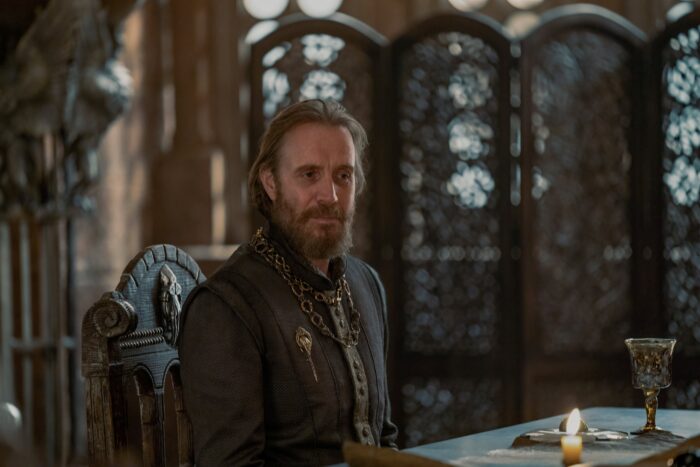

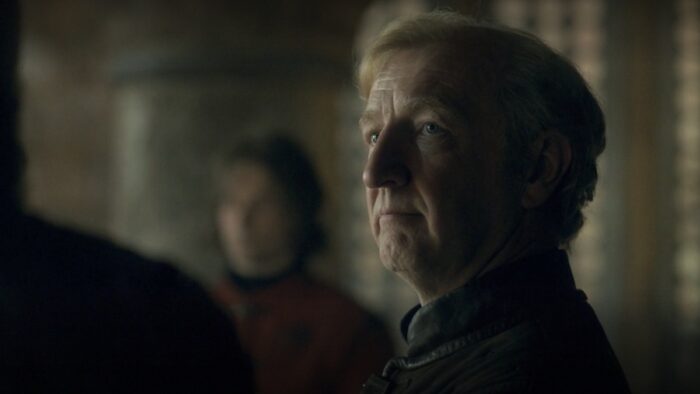
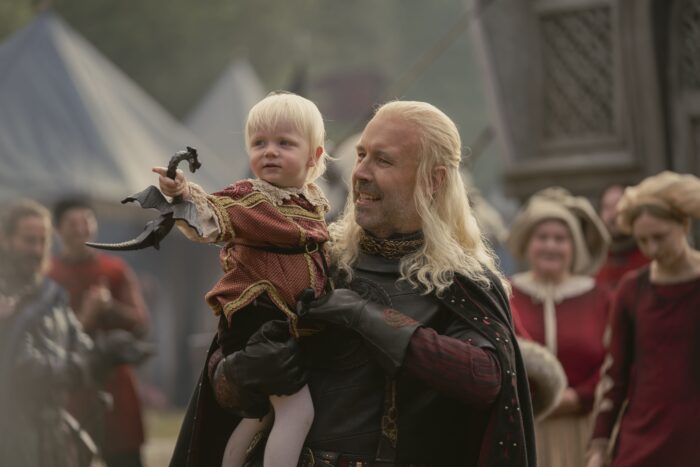
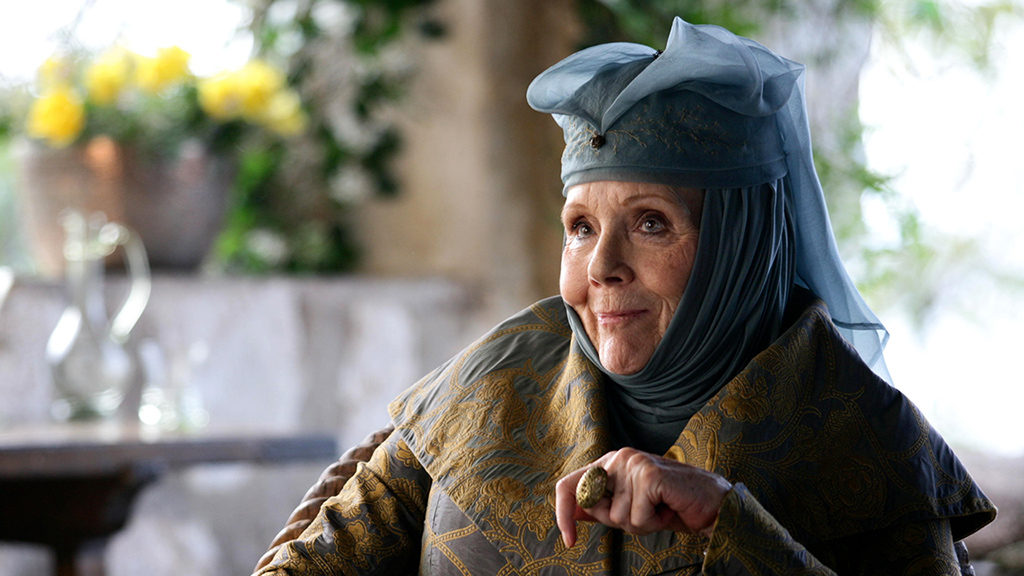
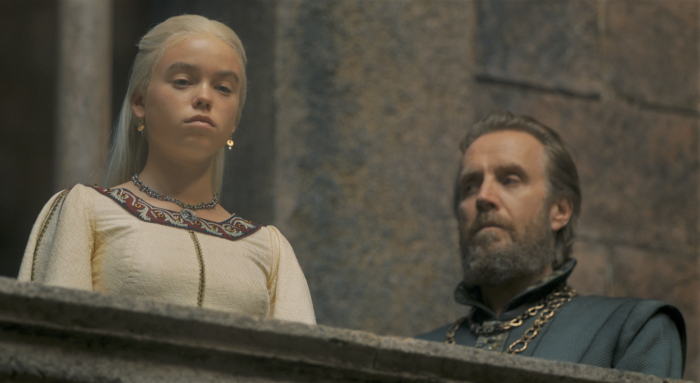
No comments:
Post a Comment